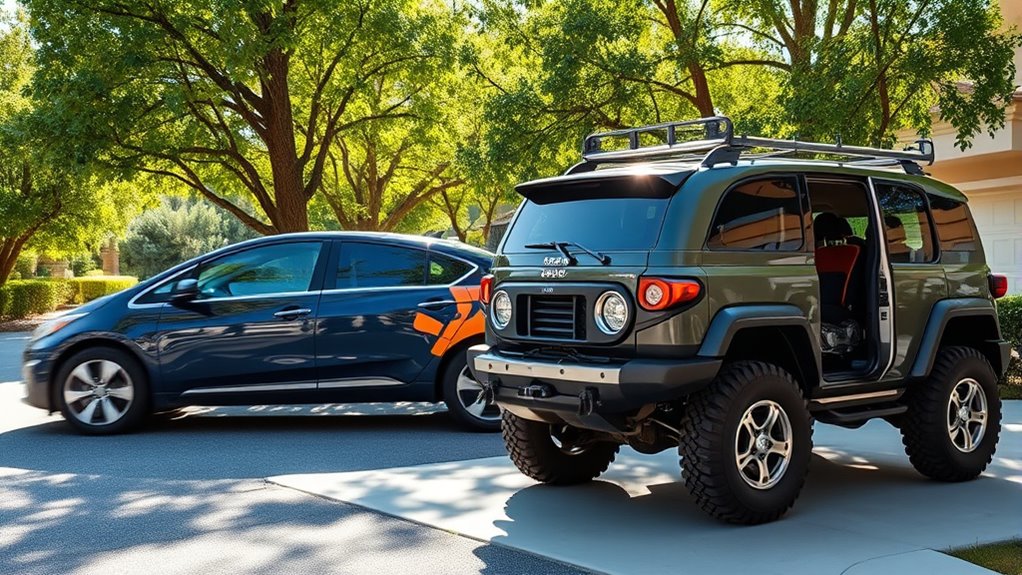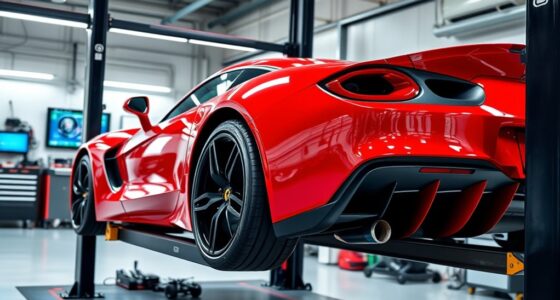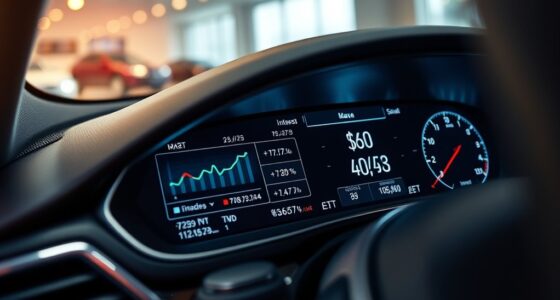When comparing maintenance costs, electric vehicles generally require less upkeep because they have fewer moving parts and no engine oil or spark plugs to replace. Hybrids offer a balance, saving fuel and needing less engine work, but still have some engine components to maintain. Gas cars are simpler but cost more over time with frequent oil changes and tune-ups. To find out which option suits you best, consider what long-term maintenance each demands.
Key Takeaways
- EVs have fewer moving parts, resulting in lower routine maintenance needs compared to hybrids and gas cars.
- Hybrids require less frequent engine maintenance but still need regular checks on both electric and combustion components.
- Gas vehicles involve more maintenance tasks like oil changes, spark plug replacements, and exhaust system checks.
- Battery health is crucial for EVs and hybrids, with potential long-term costs for replacement or repairs.
- Overall, EVs tend to have the lowest maintenance costs, hybrids offer a balance, while gas cars generally incur higher ongoing upkeep.
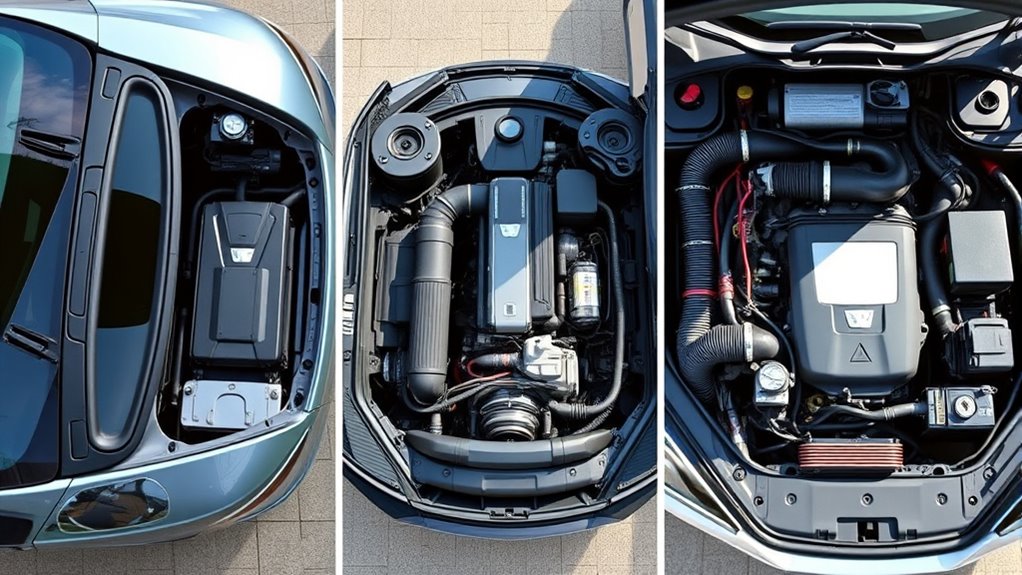
Are electric vehicles (EVs), hybrids, and gas-powered cars truly different, or just variations of the same basic idea? When you compare them, you’ll see that their maintenance needs reflect their distinct designs and technologies. For instance, EVs rely heavily on the charging infrastructure available in your area. If you live in a city with widespread charging stations, keeping an EV charged is straightforward. However, in more rural locations, limited charging options can be a concern, requiring you to plan longer trips carefully. Unlike gas cars, which can refuel quickly at nearly any gas station, EVs often need more time to recharge, making your daily routine more dependent on reliable charging infrastructure.
EV charging depends on local infrastructure, affecting convenience especially in rural areas with limited stations.
Fuel efficiency is another key factor that influences maintenance. Hybrids, combining an internal combustion engine with an electric motor, tend to be more fuel-efficient than traditional gas cars. This means you’ll spend less on fuel, but their dual systems introduce extra components that need maintenance. Hybrid batteries, while long-lasting, can be costly to replace if they fail after many years. Gas-powered vehicles, on the other hand, are simpler in design, with fewer parts that can break down, but they consume more fuel and require regular oil changes, spark plug replacements, and exhaust system checks. Over time, these routine tasks add up, impacting your overall maintenance costs.
When it comes to the powertrain, EVs have fewer moving parts—no engine oil to change, no timing belts, and fewer fluid replacements. This simplicity typically results in lower maintenance costs over the vehicle’s lifespan. Hybrids, though more complex than purely gas-powered cars, still benefit from less frequent engine maintenance because their electric motor handles a significant portion of driving, reducing wear on the engine. Gas vehicles, with their reliance on internal combustion engines, require consistent attention to maintain optimal performance. You’ll be looking at more frequent oil changes, filter replacements, and exhaust system inspections.
Battery health is a major concern across all three types. EVs and hybrids both depend heavily on their batteries, making battery replacement or repair a significant consideration in long-term maintenance planning. Gas cars, without large batteries, tend to have fewer concerns in that area but may face other issues like transmission or fuel system repairs. Additionally, advancements in battery technology are continuously improving longevity and reducing replacement costs, which can influence your long-term maintenance decisions.
In the end, your choice depends on your driving habits, access to charging infrastructure, and your willingness to handle different maintenance tasks. EVs may save you money on routine upkeep but require attention to battery health and charging options. Hybrids offer a balance, reducing fuel costs while still needing some engine maintenance. Gas cars, while simpler, tend to cost more in fuel and regular tune-ups.

EV Maintenance Log Book
As an affiliate, we earn on qualifying purchases.
As an affiliate, we earn on qualifying purchases.
Frequently Asked Questions
How Often Do EV Batteries Need to Be Replaced?
You might wonder about battery lifespan and replacement frequency for EV batteries. Typically, EV batteries last between 8 to 15 years, depending on usage and climate. Most manufacturers offer warranties covering 8 years or around 100,000 miles. With proper care, you can delay replacement, but eventually, the battery may need replacing as it loses capacity. Overall, EV batteries are designed for longevity, making replacements infrequent and manageable.
What Are the Maintenance Costs for Hybrid Transmissions?
Hybrid transmission maintenance costs mainly depend on proper care and usage. You might spend less on transmission repairs if you keep up with regular checkups, ensuring smooth shifting and longevity. While hybrid batteries tend to last many years, transmission repairs can be modest or more costly, based on wear and tear. Staying proactive with maintenance minimizes expenses, maximizes battery longevity, and keeps your hybrid humming happily without hefty repair costs.
Do Gas Cars Require More Frequent Oil Changes?
Gas cars generally require more frequent oil changes than hybrids or EVs. You’ll need to check your oil change frequency regularly because fresh oil helps reduce engine wear and keeps your engine running smoothly. Over time, oil breaks down and becomes less effective, so sticking to the recommended schedule can prevent costly repairs. In contrast, hybrids and EVs often have longer intervals between oil changes, reducing your maintenance trips.
How Does Maintenance Differ During Extreme Weather Conditions?
Did you know extreme weather can increase your vehicle’s maintenance needs by up to 30%? During cold snaps, you’ll want to check your coolant levels and ensure your battery insulation is intact to prevent freezing issues. In hot weather, keep an eye on cooling systems and tire pressure. Regularly inspecting these components helps your car perform better and lasts longer, no matter the climate.
Are There Differences in Maintenance for Older Versus Newer Models?
When comparing older and newer models, you’ll notice differences in maintenance needs. Older vehicles may require more age-related repairs, especially with battery longevity concerns. Newer models often have advanced technology that reduces maintenance, but they still need regular checks. You should stay on top of battery health and look out for signs of wear. Regular maintenance guarantees your vehicle runs smoothly and helps catch potential issues early, regardless of its age.

Hybrid Battery Wire Harness Compatible with 2010-2015 Toyota Prius Gen 3 Replacement Electrical Connector for Hybrid Vehicle Battery System
Fitment:This Hybrid Battery kit is Compatible with Gen 3 Toyota Prius (2010-2015)
As an affiliate, we earn on qualifying purchases.
As an affiliate, we earn on qualifying purchases.
Conclusion
No matter which type of car you choose, remember that maintenance isn’t just a minor chore — it’s the secret to revealing the true power of your vehicle. EVs might seem simple now, but neglect them, and they’ll surprise you with costly surprises. Hybrids blend complexity and convenience, demanding your attention. Gas cars? They might seem straightforward, but ignore their needs, and they’ll turn into money-dripping nightmares. Stay vigilant, stay ahead — your car’s future depends on it!
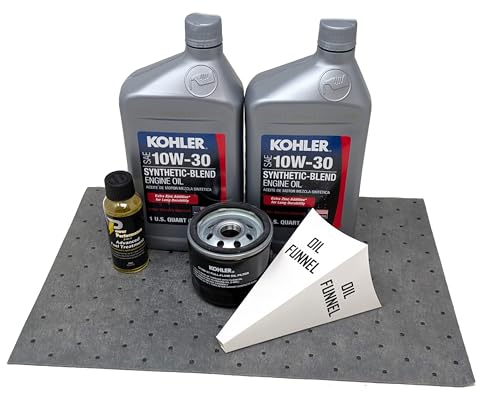
Kohler Genuine 12 050 01-S Oil Change Kit w/Oil pad 10W-30 Oil and Fuel Treatment
Kohler SAE 10W-30 Engine Oil Synthetic Blend (2 Quarts)
As an affiliate, we earn on qualifying purchases.
As an affiliate, we earn on qualifying purchases.

ChargePoint HomeFlex Level 2 EV Charger J1772 – Fast Smart Battery Power Charging at Home for Electric Automobile Vehicles – Hardwired for Electric Car
Charge with Confidence: ChargePoint builds reliable, flexible EV charging stations for home, business, and fleets. Get 24/7 support…
As an affiliate, we earn on qualifying purchases.
As an affiliate, we earn on qualifying purchases.
